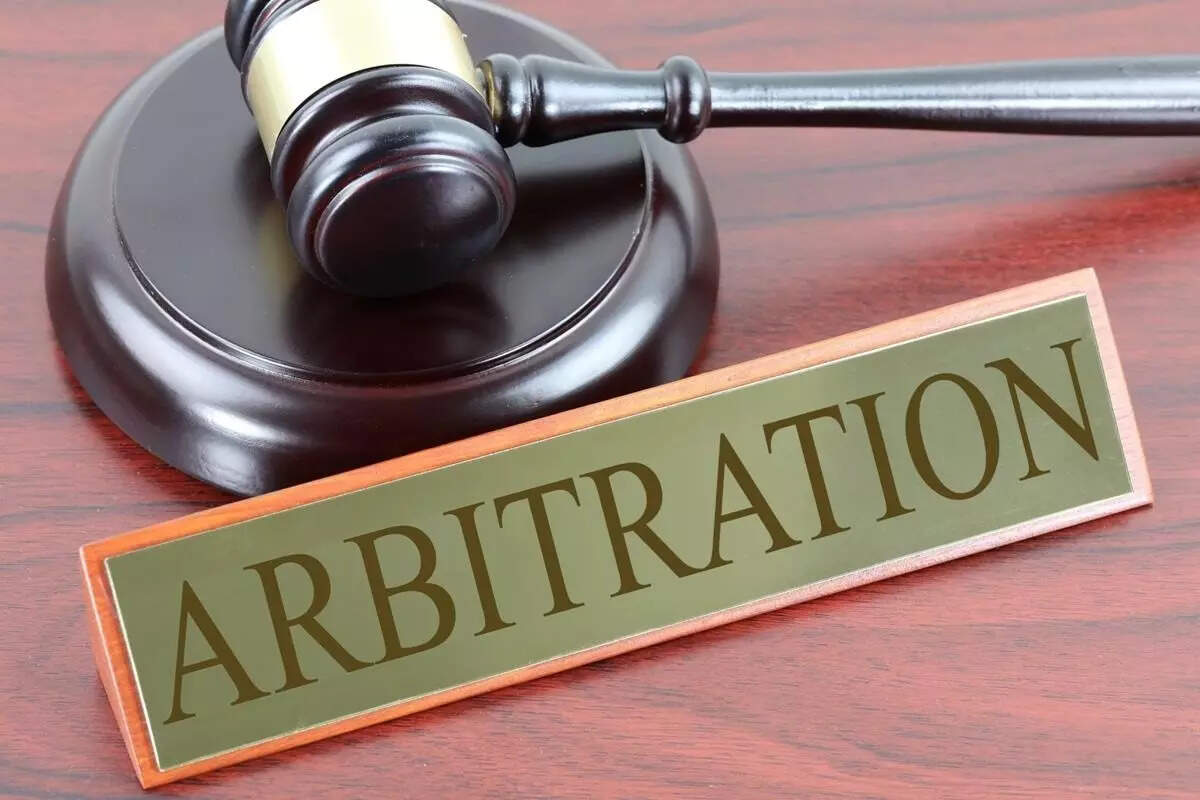- Tax, Legal & Accounting
- 5 min read
India as hub for international arbitration needs to be accessible, economical, simple: Judges
India has all the relevant infrastructure to become international arbitration hub in terms of human resources and capability for the same as per Judges of various High Courts, however, making India hub for international arbitration need to revamp certain statutory provisions, adopt measures that prove to be effective in terms of the conduct of proceedings, preserve evidence in arbitration and adopt simpler methods that are economical and effective in enabling international arbitration in India.

A rare conjunction where the sitting judges from across India came together and deliberated on relevant topics at the United Nations Commission on International Trade Law (UNCITRAL) South Asian Conference, 2023 held on September 16, 2023.
In the panel discussion on ‘Making India hub for international arbitration’, the sitting judges from Bombay, Kerala, Delhi and Calcutta High Courts spoke about the need to revamp certain statutory provisions, adopt measures that prove to be effective in terms of the conduct of proceedings, preserve evidence in arbitration and adopt simpler methods that are economical and effective in enabling international arbitration in India.
The High Court judges were unanimous that India has all relevant infrastructure in terms of human resources and capability for the same. ETCFO decodes the accessible, economical and simpler measures that would better India as an arbitration hub.
Ad hoc arbitration versus Institutional arbitration
Justice Hemant Gupta, chairperson of the statutory body India International Arbitration Centre (IIAC), advocated for institutional arbitration.
He said that institutional arbitration is regulated by a statutory body on the basis of rules and conduct of arbitration. On the other hand, ad hoc arbitration has no control over fee and timeline. Although a fee structure is mentioned in the fourth schedule (which was inserted into the Arbitration and Conciliation Act, 1996 Act in the 2015 amendment), it is not mandatory.
Therefore, in ad hoc arbitration, the parties directly negotiates the fees with the arbitrators, whereas, in institutional arbitration the arbitrators' fees is paid as stipulated by the institution.
“Ad Hoc arbitration is more cost effective than institutional arbitration which is a misnomer and I say so with confidence,” added the chair of IIAC while stating the difference between the two.
Yashwant Varma, Judge Delhi High Court concurred, saying that new amendments and setting up of India's arbitration centre are the way forward.
"Why it has not taken off, yet, is perhaps a lack of credible institutions and the Permanent Court of Arbitration (PCA) model (these are procedural rules for arbitration of disputes involving countries, state-controlled entities, intergovernmental organizations, and private parties) is yet to be put in place," he said. “Now that we have more bilateral agreements, Bilateral Investment Treaties’ (BITs) disputes, all the more reasons for a fundamental shift to institutional arbitration. It should give far greater confidence to adopt a dispute resolution mechanism,” he added.

Key areas for making India an international arbitration hub
In the said panel discussion, the panelist judges touched upon various points such as the appointment of arbitrators; what the international best practices are and how India can adopt them; effective implementation of arbitral awards; and changing people's mindset is imperative for making India a hub for international arbitration like London, Malaysia, Singapore or Hong Kong court for International Arbitration.
Appointment of arbitrator: Independence & impartiality needs to be checked
As far as the appointment of arbitrators is concerned, Justice Girish Kulkarni of the Bombay High Court shared the importance of securing an independent and impartial arbitrator.
It would be taking recourse in what legislation has provided under section 11 (8) (qualification and considerations of appointment of arbitrator) and read with section 12 (1) (written disclosure of any circumstances likely to give rise to justifiable doubts as to arbitrator’s independence or impartiality) -- so we have to look into the provision as to that person has no financial or business/professional connection with any of the parties.Justice Girish Kulkarni of the Bombay High Court
He cited an example where an arbitral tribunal was suggested and the matter came before the court, where one of the parties suggested a particular arbitrator. As the law provides for disclosures, it came to light that this particular arbitrator had already done 450 arbitrations of this finance company. “Such issues come up before the court and one has to test the subject matter of the case and the best suitable arbitrator,” he added.
The challenge as he highlighted was that there are limited experts in this field and many times they have consultations with the parties. “So one cannot rely only on a panel of arbitrators that a high court or an institution may have. Then one has to depend on parties themselves coming forth and agreeing to a name in such situations,” he suggested.
However, a common norm for government related arbitration agreements is that there is a government nominated arbitrator given the role to adjudicate. This raises question on the arbitrators' independence and bias.
The government must acknowledge that unilateral appointments cannot be done, Justice Varma said. “There can't be a unilateral appointment if you recognise party autonomy as being the bedrock for arbitration worldwide,” he said.
International best practices
Justice Moushumi Bhattacharya of Calcutta High Court suggested that some international best practices in terms of procedures would enable India as a hub for international arbitration: Consolidation of proceedings, asking parties to deposit unpaid fee of the arbitrator, maintaining the confidentiality of the parties, documentary evidence for quick measures.
She also stressed that there needs to be a shift in the mindset of the people regarding arbitration when it comes to the finality of its outcome. “Arbitration is final, arbitrators have the powers of the judge,” she added.
Speaking on the imposition of arbitral awards in the final leg of the discussion, Justice Bhattacharya pointed out that asset tracing is an effective enforcement of arbitral awards.
Asset tracing is a measure that reinstates and reinforces the confidence of the party who goes to arbitration with full knowledge that there will be an award and mitigate the risk of the award being dissipated.Justice Moushumi Bhattacharya of Calcutta High Court
India as a hub for international arbitration has come a long way. The journey of arbitration law is to be seen from The Arbitration and Conciliation Act, 1996 (1996 ACT) which is being used by us to implement the arbitration mechanism and adjudicate disputes.
In 2001, the law commission deliberated, and significant modifications were suggested. However, the 2001 Bill did not go ahead. A legislative amendment in 2015 brought a massive change in the entire arbitration scenario and law. This amendment made arbitration time bond, a time limit in the process of arbitration was fixed at 12 months which could be extended for an extra time period of 6 months. The challenges to the arbitral award to be dealt with within a period of a year and many such changes. The arbitration law is still evolving while India gears up to becoming the international arbitration hub.



COMMENTS
All Comments
By commenting, you agree to the Prohibited Content Policy
PostBy commenting, you agree to the Prohibited Content Policy
PostFind this Comment Offensive?
Choose your reason below and click on the submit button. This will alert our moderators to take actions